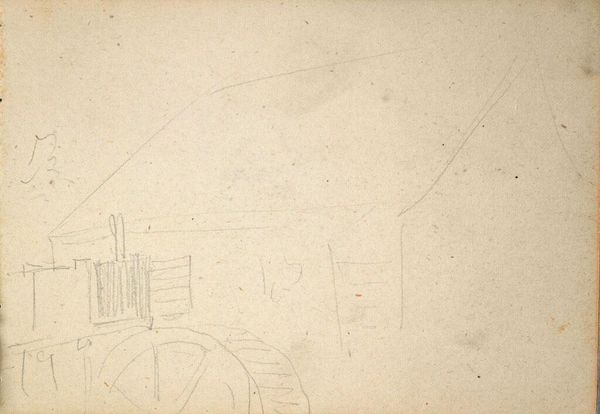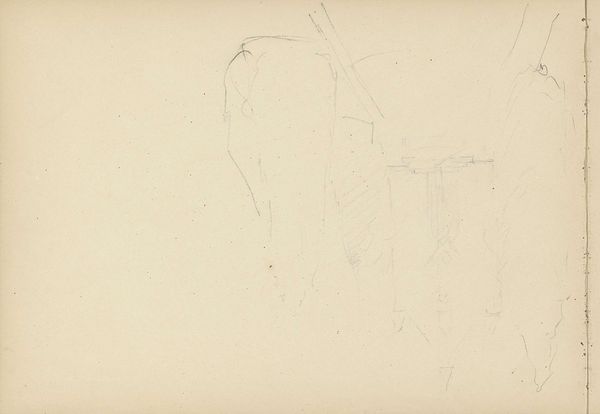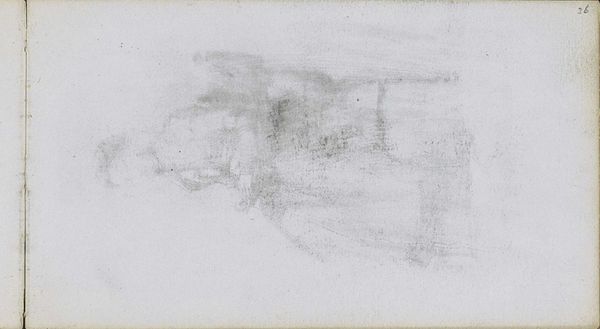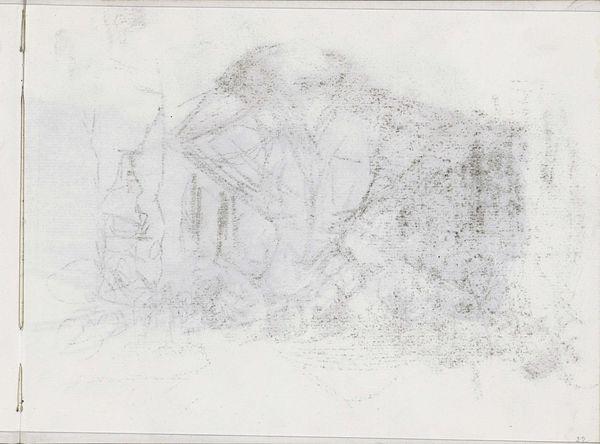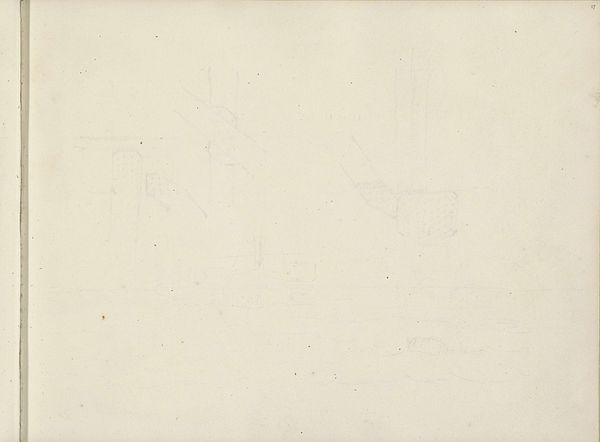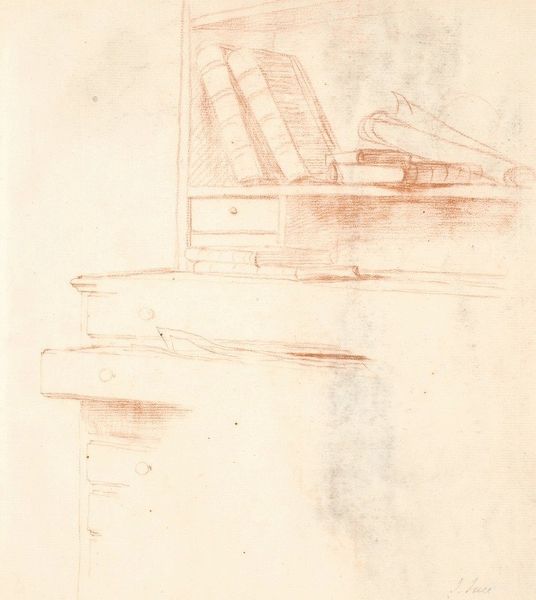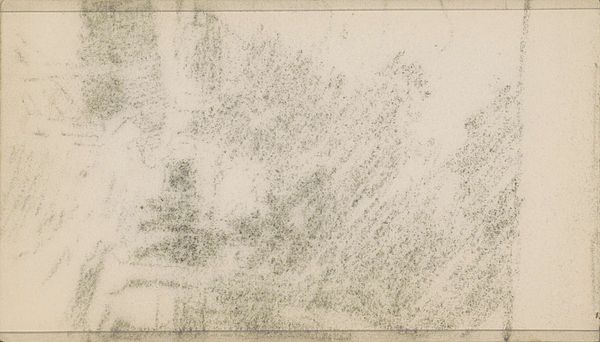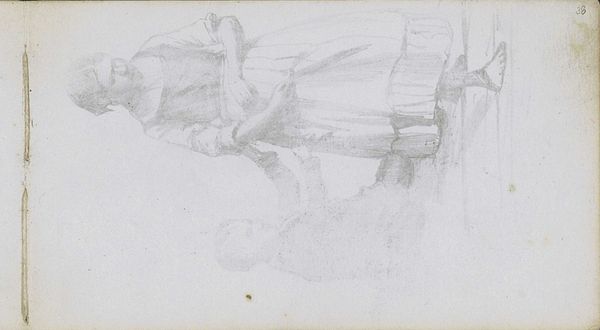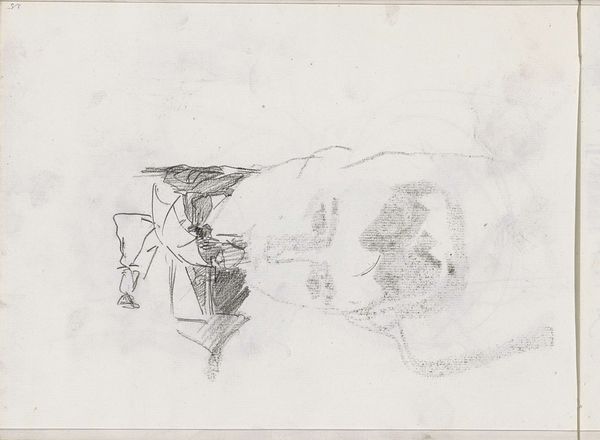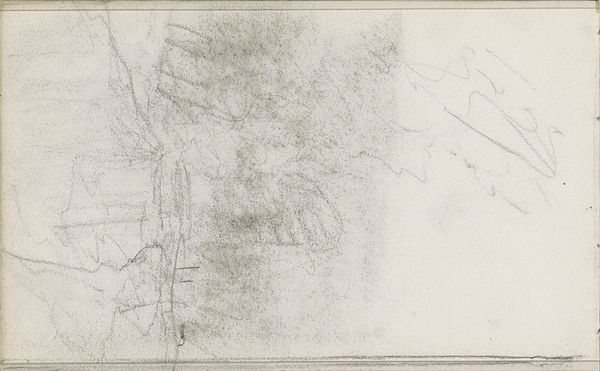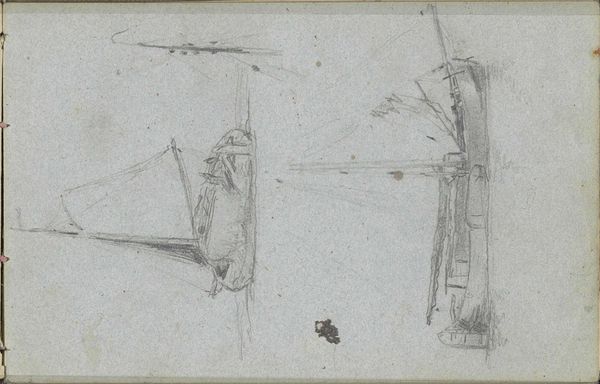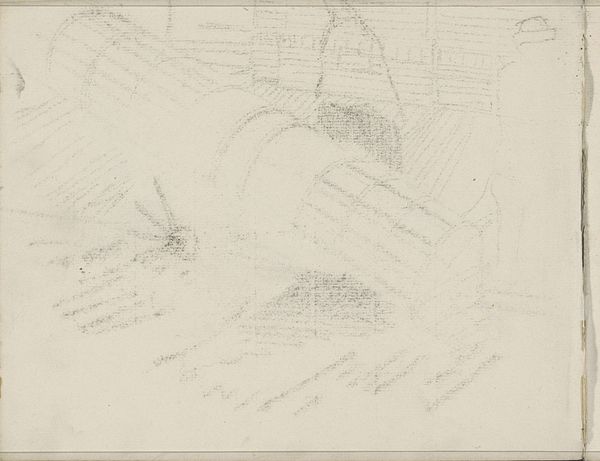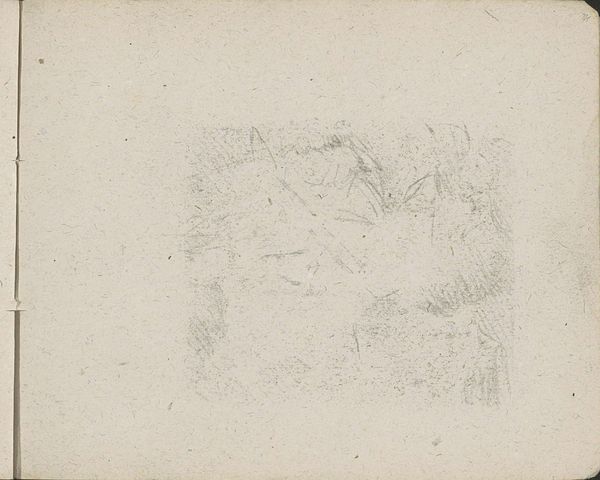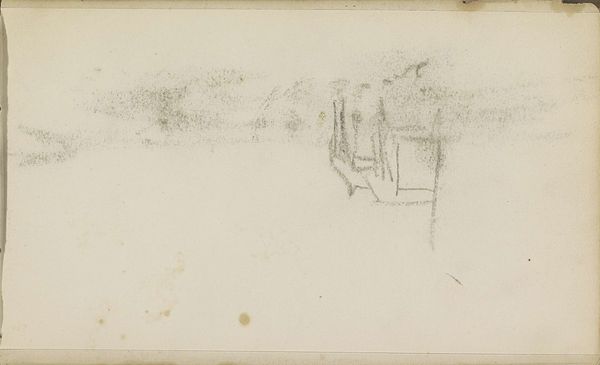
Copyright: Rijks Museum: Open Domain
Editor: This is “Abklatsch van een potloodtekening,” a pencil drawing by Johan Hendrik Weissenbruch, made sometime between 1834 and 1903. It's incredibly faint, almost ghostly. What stands out to me is how ephemeral it feels, like a fleeting impression captured on paper. What can you tell me about this piece? Curator: Looking at this drawing, I’m struck by the immediate presence of the material itself. The pencil, the paper – these were readily available materials, allowing Weissenbruch to explore a direct and immediate form of image-making. The "Abklatsch" in the title suggests a copy or transfer. Considering its reproductive nature, what does that imply about artistic labor and accessibility in that period? Was Weissenbruch making art for the elite, or experimenting with wider distribution? Editor: That's a great point. It’s so delicate it’s easy to miss that aspect of reproducibility, of the social circulation of images! So, you’re less focused on the final image, and more on the artistic practice and distribution possibilities of the time? Curator: Exactly! And consider the toning of the paper. It's not a pristine white surface, but something already aged, perhaps recycled. This further roots the artwork in a specific material context. We should investigate the paper's provenance, analyze the pencil lead – these material factors tell a rich story about Weissenbruch’s choices and the available resources. The concept of 'sketch' becomes central here. Editor: So, by focusing on the materials and process, we shift from just admiring the artwork's aesthetic, to thinking about its role in a broader system of production and consumption? Curator: Precisely. It challenges the traditional view of art as a singular, precious object and invites us to think about the labour, materiality and distribution involved. What stories do these material remnants whisper to us about the artist's practice and the socio-economic conditions of his time? Editor: I’ll definitely look at sketches differently now, as material objects embedded in a specific historical context. Thank you! Curator: A fresh perspective is always welcome. Thanks!
Comments
No comments
Be the first to comment and join the conversation on the ultimate creative platform.
